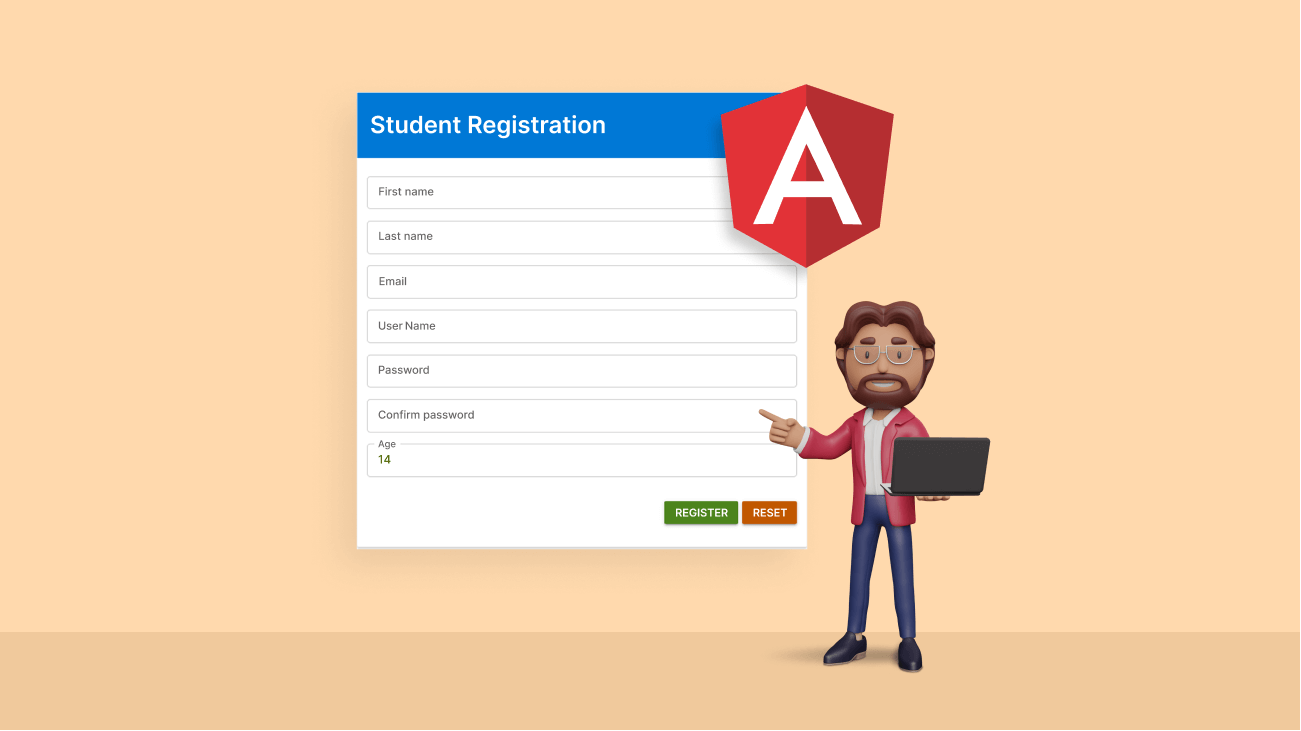Angular, one of the leading front-end frameworks, empowers developers to build dynamic web applications with ease. When it comes to forms and data validation, email validation is a critical aspect. Angular provides a flexible and powerful mechanism for validating email addresses using regular expressions (regex). In this comprehensive guide, I, an expert in Angular development, will take you on a journey through Angular email validation patterns and regex, ensuring you can master this crucial skill.
Why Email Validation Patterns and Regex Matter
Email validation patterns and regex play a vital role in web development for several reasons:
Data Integrity: Validating email addresses ensures that the data collected is accurate and reliable.
User Experience: Properly validated email fields prevent users from encountering frustrating errors during form submission.
Security: Robust email validation rules protect your application from spam, malicious users, and potential vulnerabilities.
Basic Email Validation in Angular
Angular offers a straightforward way to implement basic email validation using built-in directives. Here's an example:
<input type="email" [(ngModel)]="userEmail" name="userEmail" required>
In this example, the type="email" attribute indicates that the input should accept email addresses. The [(ngModel)] directive binds the input value to a variable (userEmail), and the required attribute ensures that the field is not left empty.
Advanced Email Validation with Regex
While basic validation is essential, you can enhance email validation by using regex patterns. Angular allows you to create custom validators to enforce specific email validation rules unique to your application.
Here's an example of an Angular custom validator using regex:
import { AbstractControl, ValidatorFn } from '@angular/forms';
export function emailValidator(): ValidatorFn {
return (control: AbstractControl): { [key: string]: any } | null => {
const regexPattern = /^[a-zA-Z0-9._%+-]+@[a-zA-Z0-9.-]+\.[a-zA-Z]{2,4}$/;
const valid = regexPattern.test(control.value);
return valid ? null : { invalidEmail: { value: control.value } };
};
}
In this code, we define an emailValidator function that returns a validator function. This validator uses a regex pattern to validate the email address format.
Common Regex Patterns for Email Validation
Email validation using regex relies on specific patterns to ensure that email addresses adhere to common standards. Here are some commonly used regex patterns for email validation:
Basic Pattern: /^[a-zA-Z0-9._%+-]+@[a-zA-Z0-9.-]+\.[a-zA-Z]{2,4}$/
Allowing Subdomains: /^[a-zA-Z0-9._%+-]+@[a-zA-Z0-9.-]+\.[a-zA-Z]{2,}$
Internationalized Email Addresses (IDN): Complex regex patterns for validating internationalized email addresses.
Using Regex in Angular Forms
To apply a custom regex validator to an Angular form field, you can use the Validators.pattern() method. Here's an example:
import { Validators } from '@angular/forms';
const emailFormControl = new FormControl('', [
Validators.required,
Validators.email, // Angular's built-in email validator
Validators.pattern(/your-regex-pattern-here/)
]);
In this code, we add a custom regex pattern validator to the emailFormControl. You can replace your-regex-pattern-here with the desired regex pattern.
Testing and Fine-Tuning Regex Patterns
Testing regex patterns thoroughly is essential to ensure they cover all edge cases and validate email addresses accurately. Consider using online regex testers or libraries like RegExr or Regex101 to experiment with and fine-tune your regex patterns.
Common Challenges and Pitfalls
When working with email validation patterns and regex, you may encounter some common challenges:
Overly Complex Patterns: Avoid using overly complex regex patterns that may be difficult to understand and maintain.
False Negatives: Ensure that your regex pattern does not reject valid email addresses unintentionally.
Pattern Updates: Stay up-to-date with email standards and update your regex patterns as needed.
Conclusion
Mastering email validation patterns and regex in Angular is a valuable skill for any web developer. By following best practices, understanding regex patterns, and tackling common challenges, you can create secure and user-friendly forms that enhance data integrity and user experience.
As you continue your journey in Angular development, remember that email validation is just one piece of the puzzle. Embrace the power of regex and email validation patterns to build robust, user-friendly forms that elevate your web applications to the next level.



